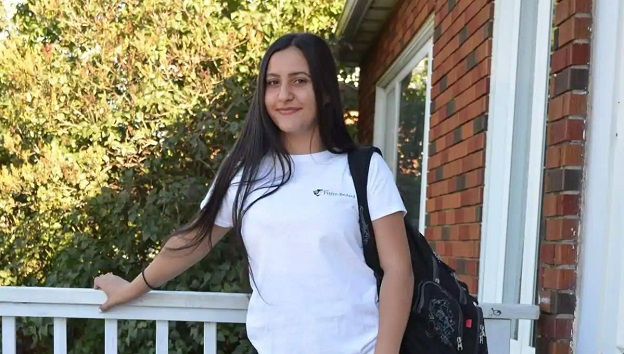Quebec will require vast majority of economic immigrants speak French before arriving

Posted May 25, 2023 1:10 pm.
Last Updated May 25, 2023 6:19 pm.
Quebec is cleaning up its immigration programs, with the goal of eventually achieving 100 per cent Francophone economic immigration and creating two scenarios of future immigration.
The announcement was made at a press conference Thursday afternoon including Premier Legault, the Minister of Immigration, Francisation and Integration, Christine Fréchette, and the Minister of the French Language, Jean-François Roberge.
“Unfortunately since many years now we see the percentage of Francophones in Quebec decreasing,” Legault said. “In fact, on the island of Montreal right now we’re at 48 per cent of Francophones at home, so I think that if we want to make sure long term that we still speak French in Quebec, it’s important that we stop this decrease and start seeing an increase in percentage of Francophones.”
Legault says the province will require that the vast majority of economic immigrants to Quebec speak French before they arrive.
Sixty-five per cent of immigrants to Quebec come through the economic immigration stream, which is controlled by the province.
They said a minimum knowledge of oral French will now be required for adults wishing to be selected in all economic immigration programs.
The government is hoping to ensure that people who settle in Québec will be able to communicate in French, both at work and in other aspects of daily life.
“Sometimes we cannot find the the labour, the talent in a francophone setting, in a francophone environment and we have to look somewhere else,” said U.S. and Canadian immigration lawyer, Viviane Albuquerque. “We have several clients that choose not to hire no francophones, not because they have no will, but because of the needs of the company and of the skills that they have and those individuals they are going to suffer.”
“Overall, if we cannot bring the brightest and the best, Quebec in itself suffers,” she added.
Two scenarios of immigration
Legault says his government is also considering increasing the number of immigrants it accepts every year to 60,000 people from 50,000 people, by 2027.
This is one of the scenarios proposed in the “Multi-year planning of immigration to Quebec for the period 2024-2027” tabled by Immigration Minister Fréchette.
“The first scenario proposes a gradual increase in admission thresholds to reach 60,000 in 2027, an increase concentrated in the skilled worker subcategory,” the document reads.
“This gradual increase in admissions will enable us to make a greater contribution to meeting labour needs in certain priority sectors of activity,” it also states.
He says the rise in immigration would come from people arriving through the economic stream, adding that his government is not considering increasing the number of people who immigrate through the family reunification program or as refugees.
“I thought at the time that the federal government wouldn’t permit us to increase only the percentage of economic immigrants,” said Legault. “But so far, with the discussion we had with the federal government, they are more than open to accept that, so it’s completely changing the picture.”
RELATED:
- Quebec population sees largest growth in 50 years, boosted by immigration
- Quebec government rejects Trudeau’s immigration plan, fears decline of French
During the election campaign, Premier François Legault said that raising the thresholds above 50,000 would be “suicidal.” Now he says that if immigrants speak French they wouldn’t threaten the province’s culture and language.
“I understand the political background of the message to please the electorate, but the reality is we do need workers and we need them now,” said Carlos Rojas of Conseil Migrant. “Right now we have a system of francisation that is working and the system should be reinforce and improved.”
A second scenario maintains the status quo at 50,000 permanent immigrants per year.
Both options are subject to public consultation.
In a press release, the Quebec government says, “The consultation will culminate with the holding of a parliamentary committee lasting several days, it will be an opportunity to listen to and respond to the concerns expressed by civil society.”
– With files from The Canadian Press.








